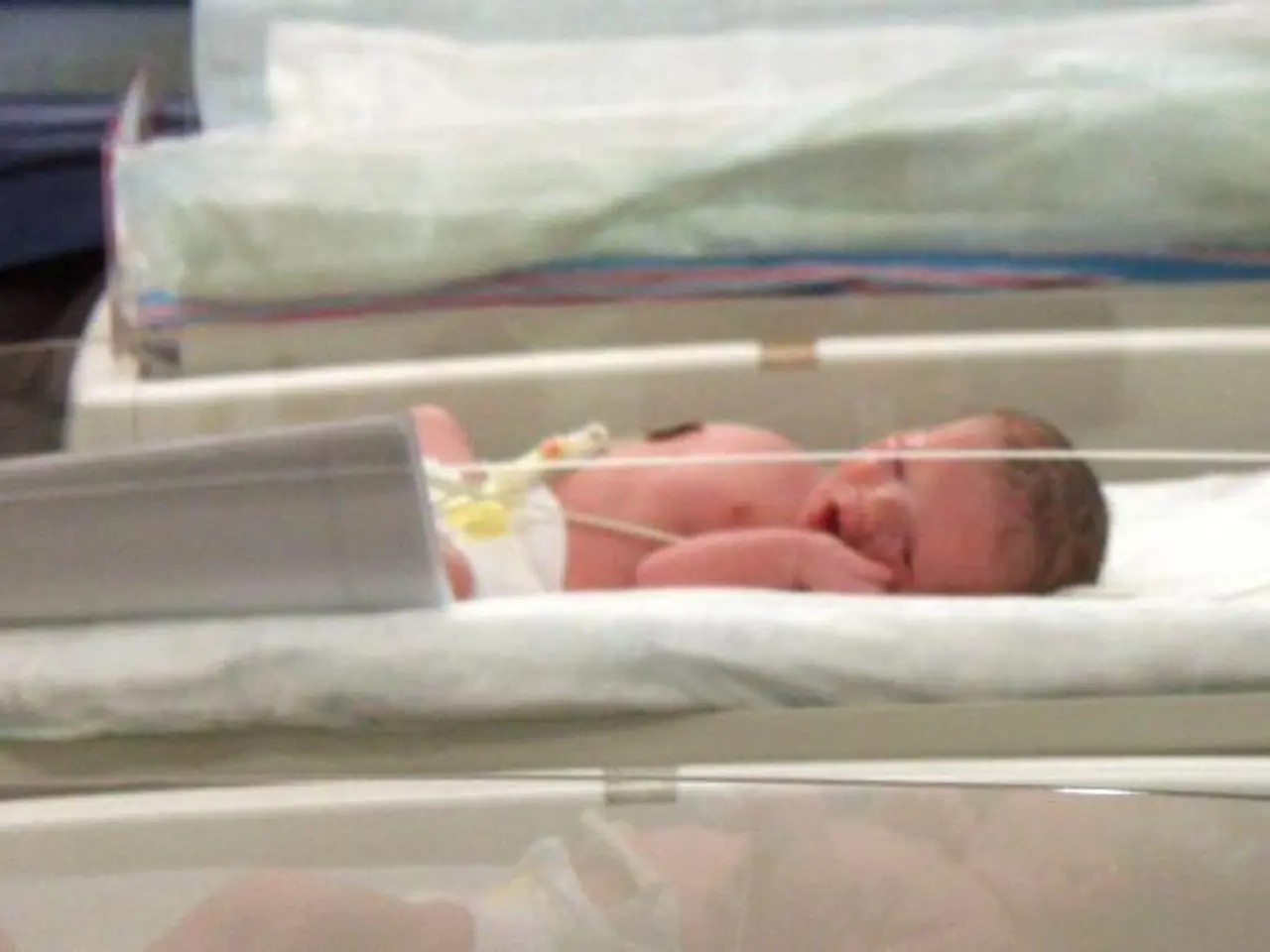Crucial Prenatal Examinations for Pregnant Women in Nigeria
Prenatal testing plays a vital role in ensuring the health and safety of both the mother and the baby during pregnancy. In Nigeria, expectant mothers can benefit from a range of prenatal tests that are essential for monitoring their health and their baby's development.
During the first trimester, expectant mothers typically undergo a series of tests. Pregnancy confirmation tests, such as urine tests or blood tests that detect human chorionic gonadotropin (hCG) levels, are used to confirm early pregnancy. An early ultrasound (around 6-8 weeks) can confirm gestational age and detect potential issues like ectopic pregnancy.
Blood group and Rhesus factor determination, sickle cell status, syphilis and HIV testing, baseline blood pressure and urine tests, prenatal vitamins and folic acid are also crucial tests during this period. These tests help monitor for early signs of complications, ensure early detection and treatment of infections, and provide necessary nutrients for the developing fetus.
In the second trimester, expectant mothers undergo a 20-week anatomy scan, which provides a detailed assessment of fetal development and screens for congenital anomalies. Gestational diabetes screening is also performed to identify gestational diabetes, a condition that can affect both the mother and the baby. Hepatitis B testing, blood tests for anemia, and Group B Streptococcus (GBS) screening are also carried out during this period.
The third trimester sees the continuation of several tests, including ultrasound (growth scan), blood pressure monitoring, urinalysis, fetal movement monitoring, and delivery planning discussions. GBS screening, which is performed between 36 and 37 weeks, helps identify GBS colonization, allowing for timely antibiotic administration during labor to manage any infection risk to the baby.
For pregnant women with specific conditions like sickle cell disease, additional specialized care is recommended throughout all trimesters, including regular monitoring for complications and vaso-occlusive crises.
Early detection through prenatal tests allows for timely interventions to address potential health concerns that could affect the mother or baby. Prenatal tests provide reassurance through continuous monitoring of the baby's development, offering peace of mind to expectant mothers. By prioritizing regular prenatal tests, expectant mothers in Nigeria can manage their health and their baby's well-being, ensuring a healthy pregnancy journey.
Access to prenatal tests is essential for monitoring the health of both the mother and the baby throughout pregnancy in Nigeria. Educating women about the significance of prenatal tests and how they can positively impact their pregnancy journey is important in overcoming cultural barriers. Joining support groups or connecting with other expectant mothers can offer emotional and mental support throughout this significant period in their lives. Seeking professional medical care is advisable for expectant mothers in Nigeria, as healthcare providers who specialize in prenatal care can provide necessary information and support during pregnancy. Preparation for any special care the baby might need post-birth can be facilitated through prenatal tests, helping families prepare effectively.
- Regular prenatal tests are crucial for expectant mothers in Nigeria, ensuring early detection and treatment of potential medical-conditions that could impact both the mother and baby.
- Prenatal tests offer peace of mind by continuously monitoring the baby's development and growth during pregnancy.
- In addition to general tests, expectant mothers with specific conditions, such as sickle cell disease, require specialized care and regular monitoring throughout all trimesters.
- Educating expectant mothers about the importance of prenatal tests and their role in the pregnancy journey is key to overcoming cultural barriers.
- Seeking professional medical care is advisable for expectant mothers in Nigeria, as healthcare providers can provide necessary information, support, and guidance throughout pregnancy.
- By prioritizing prenatal education and regular prenatal tests, families in Nigeria can better prepare for any special care the baby might need post-birth and ensure a healthy start for their child.




